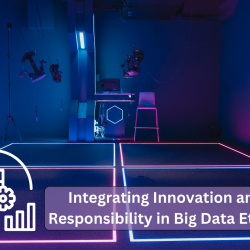Artificial Intelligence in execution: From Science Fiction to the Battlefield

Introduction to Artificial Intelligence
Welcome to the world of Artificial Intelligence (AI). AI has revolutionized our lives in ways we could have never imagined. From science fiction to the battlefield, AI is now being used to help shape our future. In this blog post, we will be taking a closer look at the various components of AI and how it works.
First and foremost, let’s start with Machine Learning. It is considered one of the core components of Artificial Intelligence because it allows computers to “learn” without being explicitly programmed. Machine Learning works by taking data from different sources, analyzing it and providing insights or predictions about the future.
Data Science is a related field that helps to put together and interpret large amounts of data for Machine Learning algorithms to use. Data Scientists work with data to discover patterns and trends which can then be used to inform decisions like marketing campaigns or product development strategies.
Cognitive Computing is also a branch of AI which refers to machines that mimic human behavior or thought processes. Cognitive computing systems are designed to learn and adapt when presented with new information. This makes them incredibly versatile as they can be used in numerous applications such as healthcare, finance or education.
Recent Developments in AI
Recent developments in AI have revolutionized the ways that we interact with and understand technology. From machine learning to automation, AI has changed the way that we have approached data science and even robotics. With the advent of algorithms, natural language processing, and deep learning, AI is now being deployed in more applications than ever before.
Machine learning is one of the most important recent developments in AI. With machine learning, algorithms can be used to analyze huge amounts of data and determine patterns that can be applied to tasks such as speech recognition or image recognition. Data science also plays a key role in developing new algorithms and systems to better understand and make use of data for AI applications.
In addition to machine learning, automation has recently been developed in order to increase efficiency of certain processes. Automation allows machines to take on certain tasks without human intervention – such as turning off lights and adjusting thermostats when no one is home – leading to improved power efficiency and operational costs overall. Robotics has also seen a major increase in usage for simple yet complex tasks like moving objects or performing inspections autonomously.
AI in Military and Defense Applications
AI is a rapidly developing technology that is being used more and more in the field of defense and military operations. AI is essentially machines that are given the capability to learn and reason, mimicking the thought processes of humans. This revolutionary technology has the potential to exponentially improve military related decision making, reduce workloads, and develop more sophisticated weaponry systems.
Machine learning (ML) is one method used within AI that allows systems to become more and more proficient in data analysis over time without having to be explicitly programmed. Through ML, these machines can take large volumes of data collected by intelligence agencies and quickly analyze it for better insights and improved accuracy when making decisions. This can give decision makers much better options when analyzing potential situations or scenarios on the battlefield.
Data science is another area where AI excels, harnessing vast amounts of unstructured data to create predictive models which can then be utilized for operational intelligence gathering or even autonomous weapon platforms. Utilizing artificial neural networks, machines can now learn patterns from this data which can then be used to inform decision makers or autonomous weapon systems about what actions need to be taken in order to achieve a desired outcome.
The Impact of AI on the Battlefield
For starters, AI can help militaries improve their defensive tactics by evolving and updating existing strategies. AI and machine learning allow militaries to quickly look through massive amounts of data to determine where and how best to employ troops, munitions, and resources for optimal efficiency. Furthermore, automation is becoming an integrated part of military operations, with autonomous weapons such as drones being used for surveillance and targeting.
Data science can also offer the battlefield advantage by focusing on understanding enemy movements while searching for patterns in order to better predict outcomes. AI-based systems can now simulate battlefield scenarios that are too complex or costly for troops to execute themselves. This allows militaries to strategize more effectively while keeping their personnel safe at the same time.
However, there are major ethical implications involved when introducing AI into warfare. For example, there needs to be safeguards in place that ensure autonomous weapons are used safely and ethically without causing unnecessary damage or risking civilian lives unnecessarily. Additionally, tech companies need to be held accountable for the products they sell to governments for use in warfare; ensuring that these tools do not become weapons of mass destruction or lead to an arms race between nations.
Potential Advantages and Disadvantages of AI on the Battlefield
One advantage of AI is its potential for increased accuracy. By leveraging machine learning and data science, an AI system can rapidly analyze large amounts of data to make decisions or identify targets much faster than what’s possible through human means. The speed at which these decisions are made helps reduce overall risk levels by reducing the margin for error.
Additionally, another advantage of using AI-backed technology on the battlefield is that it eliminates human bias from decision making processes while reducing downtime due to fatigue or exhaustion. An AI system’s ability to remain operational 24/7 also helps to enhance tactical awareness by providing actionable insights based on real time data analysis. Lastly, thanks to advancements in artificial intelligence, military organizations now have access to a variety of autonomous vehicles such as drones that help extend surveillance capabilities beyond what humans are capable of.
On the other hand, there are some potential downsides associated with implementing AI in military operations as well. Because AI-driven platforms rely heavily on algorithms set up by developers, their efficacy is only as good as the programming that sets them up.
Autonomy, Ethics, and Safety Considerations For Military Use of Artificial Intelligence
First and foremost, the use of machine learning and data science requires a deliberate approach to considering both the ethical implications and the risks involved with AI-based programs. Although concerns about data privacy and accuracy have been raised by some, these risks must nonetheless be addressed when designing any AI system to ensure that it meets the highest standards of ethical responsibility.
Second, humans must maintain ultimate control over any weapon decisions made by AI programs. This means that artificial systems should never self govern or otherwise make autonomous decisions involving weaponry without being held accountable to a higher authority. As such, safeguards must be put in place to prevent AI from making judgements outside its purview or that may go against accepted international laws.
Thirdly, military cybersecurity risks need to be monitored carefully whenever AI systems are used in conflict situations. A cyberattack on an AI-controlled system could have disastrous consequences if not fortified with adequate security measures. As such, steps must be taken to identify weaknesses in any programming so as to increase protection from potential hacking attempts.
Implications for Future Warfighting Capabilities
Through the use of machine learning, data science, and other forms of artificial intelligence, military operations can become more efficient and less prone to human error. AI algorithms can be used to automate tasks that would otherwise be completed manually or require significant human involvement. This could include various aspects of targeting, planning, resource management, logistics support, or even communication processes. Additionally, AI-powered autonomous systems could eventually replace soldiers on the battlefield to drastically reduce risk and casualties in conflicts.
The potential applications of Artificial Intelligence in military operations are vast due to its ability to process large amounts of data quickly and accurately analyze information while identifying patterns that may go unnoticed by humans alone. This could lead to improved decision making capabilities as well as increased efficiency during combat scenarios. Furthermore, AI technology has been used successfully in recent years for a variety of tasks related to defense and security such as facial recognition for surveillance or autonomous vehicles for transportation assistance.
Understanding the Role of Artificial Intelligence in Execution
AI draws upon different disciplines— such as machine learning, data science, and automation & optimization — in order to make accurate predictions. Machine learning algorithms apply supervised or unsupervised algorithms over data sets to learn patterns in order to make future decisions based on this information. Data science provides insights into the structure of data sets that can be used by machine learning algorithms for making decisions. Automation & optimization provide ways to reduce manual labor and increase precision with these decisions by finding the best solution from multiple variables.
Computational capacity is another important factor when considering AI in execution. Good computational power allows for faster processing so that AI can think on the fly and react quickly to changes. AI additionally has explainable capabilities so that its decisions can be traced back to various factors such as algorithmic strategies or increasing accuracy – making sure that the right decisions are being made at all times.
In conclusion, it is essential that we understand the role of artificial intelligence in execution and tasks related tasks so that we can take full advantage of its capabilities fully – automating mundane processes and achieving better results than ever before!






Ingen kommentarer endnu